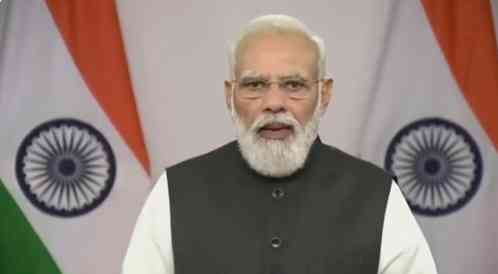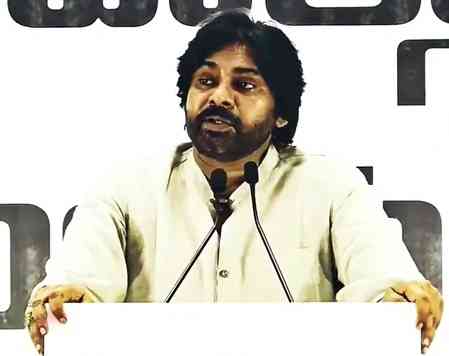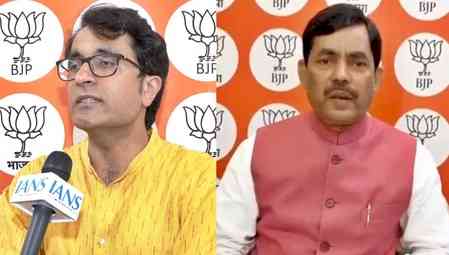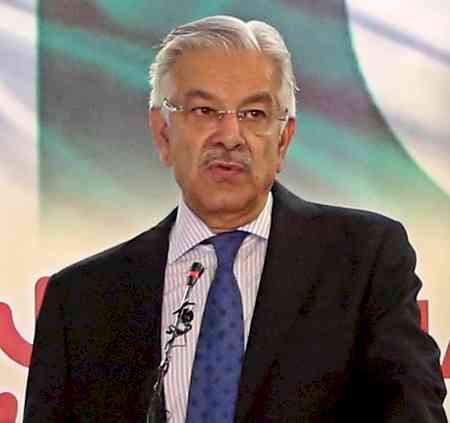Will the High Level segment make difference to COP26's outcome?

By Nivedita Khandekar
New Delhi, Oct 31 (IANS) Prime Minister Narendra Modi will, on Monday, join 120 heads of states/governments from around the world, including US President Joe Biden, at the high-level segment of the COP26, the crucial negotiation platform for countries to work out their emission plans to collectively restrict global temperature rise to 1.5 degrees Celsius.
Like this year's 'World Leaders' Summit' (WLS), it is not every year that heads of the states visit the COP and/or take part in the deliberations that in turn decide their respective country's policy for climate action. The last time they were at the COP in large numbers was at Paris in 2015 when the major document of Paris Agreement 2015 took shape.
Starting Sunday, the 26th edition of Conference of Parties (COP26) to the United Nations Convention Framework on Climate Change (UNFCCC) is taking place at the UK's Glasgow.
This COP26 is deemed critical because, as warned by the Intergovernmental Panel on Climate Change (IPCC), every additional 0.5 degree of warming will increase heat extremes, extreme precipitation, and droughts and for coastal areas, sea level rise will be a threat to their very existence.
India has a target to reduce the emissions intensity of its GDP by 33-35 per cent by 2030, compared to 2005 levels, and it has already achieved 24 per cent by 2016.
"World leaders need to come together in person and put climate change on the world agenda. The WLS before the COP is a good thing because they need to set the tone for the COP to discuss," said Centre for Science and Environment's (CSE) Sunita Narain.
"However, will they actually call out the need for transformational action, will they call out the need for looking at climate justice as the bedrock of climate negotiations moving ahead, I am not sure," she quickly added during a pre-COP media consultation.
Modi, before departing for the G20 and COP26 summits, had said: "In line with our tradition of living in harmony with nature and culture of deep respect for the planet, we are taking ambitious action on expanding clean and renewable energy, energy efficiency, afforestation and bio-diversity."
He had also made clear what are the stakes for India when he declared: "I will also highlight the need to comprehensively address climate change issues including equitable distribution of carbon space, support for mitigation and adaptation and resilience building measures, mobilisation of finance, technology transfer and importance of sustainable lifestyles for green and inclusive growth."
As has been maintained by India, there is no mention of net zero targets. Most of the western world has been pressuring India for declaring net zero goal, which India - and all the Like Minded Developing Countries (LMDC) - has already termed as shifting the goal from 2030 as per the Paris Agreement to a future date.
India has said it will announce its stance at an appropriate time. Rich countries are favouring 2050 as the net zero goal.
The updated synthesis report of the Nationally Determined Contributions (NDCs) showed that for all available NDCs of all 192 parties taken together, there would be a sizable increase, of about 16 per cent, in global GHG emissions in 2030 compared to 2010. The country-wise updates had clearly shown how inadequate the action on part of rich nations was, a point that the developing nations have been harping on.
Net zero is absorbing or removing as much carbon as a given unit consumes. Carbon emissions are responsible for global warming and the COP is a platform to negotiate and bring the emissions considerably low to prevent that temperature rise.
Scientists, however, have a word of caution about the concept of net zero. "There is no clarity on what the rich nations are saying when they talk of net zero targets. Is it net zero CO2 or is it net zero greenhouse gases (GHG)?" asked visiting Researcher at the Jadavpur University, Shreya Some.
The major push for net zero was given by the September's Sixth Assessment Report (AR6) of the IPCC. "But, the IPCC report is very clear that it is net zero carbon," she said.
Net zero or not, what will matter ultimately will be domestic actions and it is where the government has not evoked much trust. As if to showcase the glimpse of the future, the years 2020 and 2021 have witnessed more frequent and high intensity climate catastrophic events across the globe, India was no exception.
In such situations, question remains as to what is the accountability expected from the state and how should India tackle the twin challenges of climate and growing inequality?
Oxfam India CEO Amitabh Behar said: "The equity conundrum provides an opportunity to design our future actions in a way that tackles the issues together. Both inequality and climate change are in fact symptoms of a deeper malaise - a flawed, overconsumption based economic system that is predatory and exploitative by nature. So, the only way we are getting out of this quicksand is by fundamentally reimagining progress and development."
With rich countries insisting on net zero pledges and many from the developing nations, including India, insisting on delivery of promises first -- and both parties refusing to budge from their position, will there be a consensus at the end of the two week meeting? Will net zero 2050 be the bone of contention? Will this COP be a failure?
"What you do in 2050 does not matter, what you are actually doing now and in the next 10 years is crucial. What do you do about adaptation and finance? There is no debate that goals by developed countries are highly inadequate," pointed out Associate Professor, National Institute of Advanced Studies, Tejal Kanitkar.
"In fact, the global stock taking is in 2023, so why do you suddenly want to push that timeline to 2050. What the rich nations did - rather not do - by 2020 is out in the open now. So, now, this COP and the target of net zero by 2050 is an attempt at green washing that failure."
"COP failing means what?" Kanitkar said. "Whatever the outcome, it does not mean that the Paris Agreement will go away."


 IANS
IANS 










